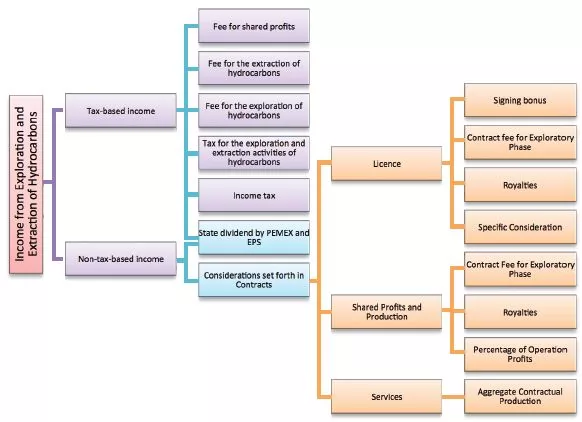Rajesh Sharma explores proposals for a more favourable tax regime for multinationals.
The Government recently published a consultation document on the treatment of foreign profits for multinationals. Its aim is to maintain the competitiveness of the UK by removing the burden of double taxation relief on overseas dividends. Put simply, the idea is to make the UK a more attractive location for multinationals by making dividends and capital gains (derived from trading companies) exempt from tax.
Several multinationals have recently talked about the possibility of moving their headquarters from the UK, citing tax as a factor. Further pressure has been created by recent European Court of Justice rulings that some UK tax legislation is contrary to the freedom of establishment enshrined in the Treaty of Rome.
Foreign Dividends
The new rules would apply to large and medium-sized businesses. Small businesses will be excluded and continue to be taxable on overseas dividends, although a simplified form of relief for overseas tax will still be available.
Under the proposals, provided foreign companies are within the new Controlled Company (CC) rules, dividends received by the UK company will be exempt from tax. To qualify, companies will need to have a minimum 10% holding in the overseas subsidiary.
To protect the tax base, anti-avoidance provisions would be introduced – so some dividends not paid out of the CC’s profits would continue to be taxable in the UK.
Portfolio Dividends
The proposals also seek to align the treatment of portfolio dividends with dividends of UK companies. The proposals are to:
- provide credit for underlying tax (as well as withholding tax) for foreign dividends or
- provide exemption for foreign dividends or
- charge to tax both UK and foreign dividends without giving credit for underlying tax (but giving credit for withholding tax).
Reform Of Old CFC Rules
The new CC rules will be a move away from an ‘all or nothing’ approach to a more targeted income-based regime, which will be extended to UK subsidiaries. The rules will tax relevant companies on passive income. This could include interest, royalties, rent, dividends from non-qualifying companies and similar income. The new rules will also bring capital gains into the regime. The disposal of assets giving rise to passive income will be taxable.
|
|
The main exemptions for passive income are similar to the existing Controlled Foreign Company (CFC) rules. The following types of income will be excluded:
- Income derived from genuine treasury activities.
- Inter-group interest where the paying company paid the interest out of profits not within the CC rules and the recipient company was also capitalised adequately.
- Certain dividends flowing within a controlled group so that the complex rules relating to intermediate holding companies will not be required.
Activities that do not satisfy the existing ‘exempt activities test’, such as income arising from dealing in goods for delivery to or from the UK, or to or from affiliates where the goods are not delivered to the CC’s territory of residence, will be regarded as passive income. Additionally, inter-group or UK-derived sales or service income from wholesale, distributive and financial services businesses will be included as passive income.
In order to avoid double taxation, relief would be given for any overseas tax suffered on the apportioned income. It is proposed that compensating adjustments (similar to the transfer pricing rules) will be used in relation to income apportioned to the UK parent from UK subsidiaries. This ‘compensating adjustments’ rule has been proposed to align the treatment of UK companies with others in the EU.
Interest Relief
The proposals state that rather than restrict interest expense where the foreign profits are not taxable, targeted anti-avoidance measures will apply. This is to limit abuse of the UK rules for interest relief so the amount of relief is limited to groups’ total consolidated external finance costs. This may have a far-reaching effect for multinational companies.
It is also proposed that the restrictions under the unallowable purpose rules under the loan relationships and derivative contracts should be amended. This is so that interest relief is restricted in situations where a loan relationship or derivative contract is part of a scheme or arrangement, with one of the main benefits being to secure a tax advantage.
Reaction To The Proposals
Many commentators have expressed their enthusiasm for the proposals as a way of making the UK more attractive as a European headquarters. In effect, the UK will:
- not tax qualifying dividends
- have a low rate of corporate tax
- have no withholding tax on dividends
- exempt gains on substantial shareholdings in trading companies.
However, the proposals do give some cause for concern:
- The CC rules are likely to be wider in scope than the existing CFC rules. The CC rules would apply to capital gains, and some income would be categorised as passive rather than active.
- The new rules will apply where the UK company holds a 10% interest in the controlled company. The current CFC rules apply only to holdings in excess of 25%.
- The proposals to restrict interest relief by reference to the overall group borrowings could have a significant impact on companies and further clarification on the proposal is required.
A Promising Future
Clearly, there remain many questions to be addressed but, all in all, the proposals should be welcomed. They could help make the UK a more attractive place for holding companies. However, it may be too early to judge and we eagerly await the results of the consultation process.
The content of this article is intended to provide a general guide to the subject matter. Specialist advice should be sought about your specific circumstances.
